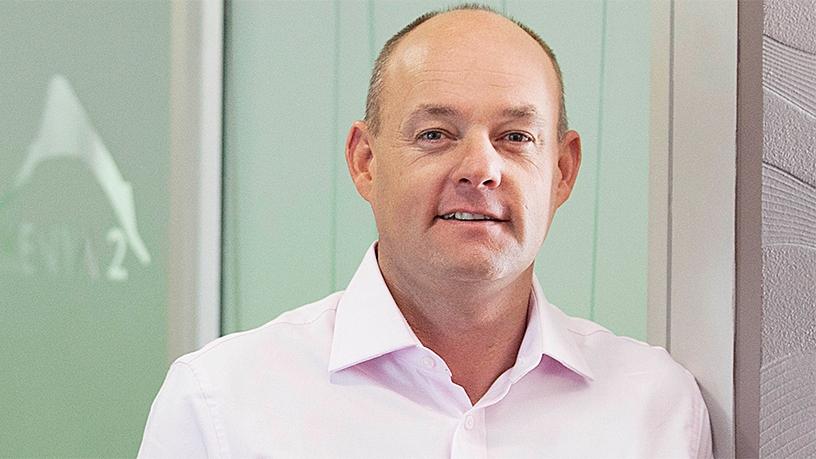
Integrated ICT and connectivity provider, Vox, has seen business boom over the last year, with big plans in the fibre market for 2018.
"While the market was slowing down, clamping down, retrenching staff, not rolling out product, not opening branches, we took the opportunity and capitalised on other companies slowing down. I think this is now showing results," Vox CEO Jacques du Toit told ITWeb in an interview.
"From a fibre perspective, the dividends have paid off; we saw a 33% growth in EBITDA last year. I don't think there is anybody in the sector that has 33% growth. Projections are that if all goes according to plan, and there are no major disruptions, next year we will see a 45% growth on the 2017 figure. So growth-wise, the strategy has paid off."
EBITDA (earnings before interest, tax, depreciation and amortisation) is seen as a measure of a company's profitability or operational performance.
In terms of fibre-to-the-home (FTTH), Du Toit says the group has now passed about 26 000 homes and there are another 75 000 in the pipeline. In terms of fibre-to-the-business (FTTB), Vox has passed 11 000 buildings and connected 9 000, in a market which Du Toit says continues to grow.
Last year, the group announced shareholders had approved a R550 million investment earmarked to boost three key areas of the business; one of the main ones being the group's fibre rollout through its wholly-owned subsidiary, Frogfoot Networks. The investment also went into improving efficiencies through enhanced automation and growing the group's sales team.
"We invested in an NLD [national long distance] fibre link from Middleburg all the way to Empangeni and Richards Bay, and we have identified 22 towns on that link that we will be rolling out with FTTB and then will slowly evolve into FTTH," he says.
Du Toit believes competition in the fibre market, however, remains fierce.
"Two things count against you: If you don't have scale and you don't have penetration. If you have scale but not penetration you are bankrupt."
He says he has seen this happen with localised players who simply run out of space to grow.
Du Toit predicts a lot of consolidation in the sector in the near future and believes only a few of the bigger players will be standing by the end. When asked if Vox is looking to acquire any of the small players, he responded: "Absolutely, we can't wait."
List? No thank you
When asked whether the company was thinking of going public, Du Toit's answered: "Definitely not."
"The problem with listing (this is a personal view) is that you tend to have a short-term focus because every six months you have to report and if that reporting cycle is not better than the previous year's the market lambasts you. That unfortunately forces you to make short-term decisions. We went through a three-year downturn cycle where our margins went down because we were just investing every single free bit of cash into building a future. A listed environment would never tolerate that," he explains.
"I mean I can't speak on behalf of the shareholders; if we needed cash for other expansions or they want to exit and we can't find another buyer then listing would be one of the options. But I think that is the last option. If it's up to me, no thank you," he adds.
Vox's major shareholders are private equity firm Metier, Rand Merchant Bank and Investec IEP.
"The company is owned by private equity shareholders which is great because they have access to cash and most of the time they are entrepreneurial by nature. Whereas if you are owned by a trade player like Telkom or Vodacom, they can be quite restrictive in their thinking, they are not challenging in the market, they do the same old thing all of the time."
Cannibalising competition
In Du Toit's view, the big mobile operators have missed the boat and have not evolved fast enough.
"Right now, I can see Vodacom, MTN and Telkom have got the most to lose. Their markets are being disrupted from both sides. The only thing they have still got kind of a monopoly on is the mobile space. The business sector is being cannibalised, the fibre space is being cannibalised, value-added-services are being cannibalised. The only thing they are going to end up with, unless they reinvent themselves, is the mobile side.
"How are they going to quickly evolve to 4G or 5G? They all say they are playing in it but they have got no fibre backbone, zero. So they are buying pockets. For 5G and 4G to be relevant, you have got to have an antenna every 80m. So if Vuma, Frogfoot and DFA own the fibre, are telcos going to lay fibre on top of that just to plant antennas? Not a chance. They are going to make all of our infrastructure players rich."
Du Toit believes the local telecoms operators "woke up way too late".
"In a perfect world without any competition, they would have wanted to lay their own fibre in a suburb, sign some customers up for fibre services, and deploy 4G and 5G towers for those services. Now they are going to buy that fibre from us, plus most of those customers will already be on fibre.
"There is no way that any sort of wireless technology will supersede the speed of fibre: not 4G, 5G, 6G, xG, it doesn't matter what it is. Fibre has got unlimited ground to gain in terms of speed," he concludes.
Share